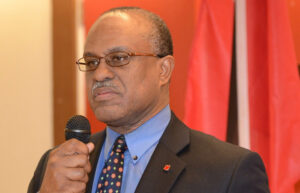On International Day for the Elimination of Racial Discrimination, Kirk Mark, a retired senior coordinator of community relations for the Toronto Catholic District School Board (TCDSB), made a compelling case to the board trustees. His plea was clear: to reconsider the recent decision to disband the 40-year-old Race Relations Committee, a decision made on February 15, 2024.

The Race Relations Committee, established in the 1980s, has been instrumental in promoting multiculturalism and addressing racial discrimination within the school board. It has led initiatives celebrating Canadian heritage months, including African, Celtic, Asian, Portuguese, and Spanish-speaking cultures, and has played a pivotal role in Indigenous education and professional learning. The committee’s work has extended beyond celebrating diversity to actively addressing systemic issues, making it a crucial entity for promoting equity and inclusion.
Mark, with decades of experience, emphasized the historical significance of the committee, which was born out of the Black community’s insistence on addressing racial discrimination. He argued that the rationale to disband the committee, citing irrelevance and redundancy, is a guise for anti-Black racism. He suggested that the move undermines the efforts to address racial discrimination that benefits all racialized communities.
In his presentation, Mark proposed a restructured committee that respects the original tenets while adapting to contemporary needs. He recommended a diverse composition for the committee, including trustees, the equity superintendent, community relations staff, parent representatives, and student representatives. This new structure aims to provide a comprehensive approach to addressing equity and systemic issues.
The trustees’ response to Mark’s proposal was a motion to receive and refer the matter to staff for consideration. The discussion highlighted a lack of awareness about the committee’s historical contributions and its potential for addressing current equity challenges. Trustee Michael Del Grande expressed regret for the board’s decision to disband the committee and acknowledged the need for a re-evaluation.
The final decision on the matter was pending at the time of reporting, as the motion to receive and refer the issue to staff was the last recorded action. The outcome of the staff’s consideration and any subsequent board decisions would determine the future of the Race Relations Committee at the TCDSB.
Mark’s call to action is a reminder of the ongoing struggle for racial equity in education. It underscores the importance of community consultation and the need for structures that effectively address the complexities of race, class, gender, and ethnicity. As the TCDSB contemplates the future of its equity initiatives, the reinstatement of the Race Relations Committee could be a pivotal step in reaffirming its commitment to inclusive education and social justice.
The TCDSB faces a critical decision that will impact its approach to equity and inclusion. The call to reinstate the Race Relations Committee is not just about preserving a historical entity; it’s about ensuring that the board remains responsive to the diverse needs of its students and the broader community. The outcome of this deliberation will be a testament to the board’s dedication to fostering an educational environment where every student feels valued, respected, and empowered.


